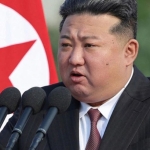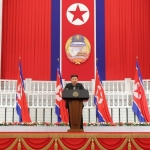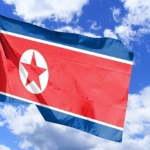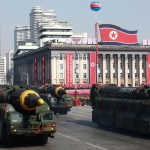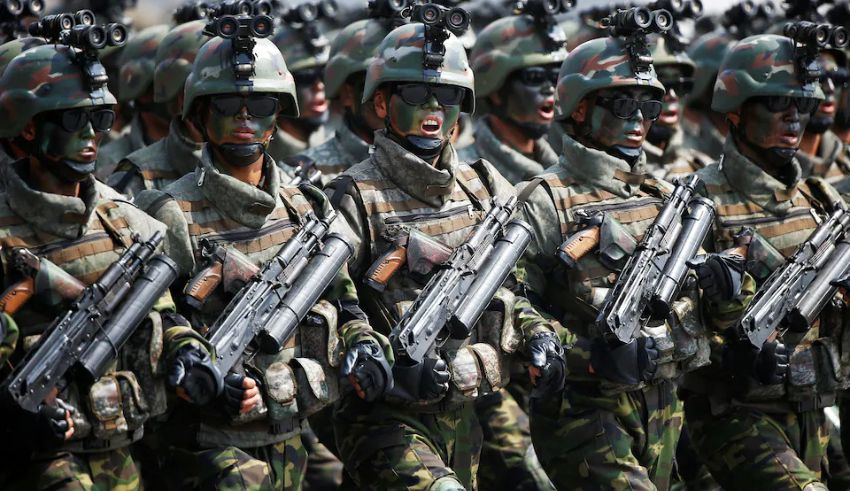
Recent events revealed North Korea’s plans to send military personnel to assist Russian troops engaged in continuous conflict with Ukraine. From Ukraine’s defense intelligence source, three generals and 500 officers among roughly 12,000 North Korean personnel are apparently scheduled to be stationed in Russia. Many foreign observers especially in view of such support show questions and pay close attention to this significant action. North Korean military participation in the Ukraine crisis points to a more general change in alliances and military cooperation, therefore posing possible issues for world security.
Telegram carried Thursday’s comments of a soldier deployment from North Korea by the defense intelligence service of Ukraine. The company did not name the source of its data, but it matches broader general issues of North Korea’s military collaboration with Russia following the situation in Ukraine. Since it happened one day after U.S. authorities thought there were most likely 3,000 North Korean troops already in Russia, the report advised active participation in the continuous military operations. Underlining the enormous weight of this development, U.S. Defense Secretary Lloyd Austin said that should Moscow and Pyongyang be functioning as “co belligerents,” it would constitute a “very, very serious issue.” This choice emphasizes the seriousness of the matter since the probability of coordinated military activities between North Korea and Russia may drastically affect the dynamics of the war in Ukraine.
Answers from North Korea and Russia
Reacting to these accusations, North Korea has refuted first claims made by South Korean intelligence sources—that of sending any troops to assist Russia. Denying any military activities, the North Korean leadership has a past of rejecting such assertions as propaganda. Claiming to be following international law in its contacts with North Korea, the Kremlin has attempted to minimize the concurrently published information. This story could help to balance any potential reaction from the world community and preserve the credibility of their military actions. These denials draw attention to both countries trying to change public opinion on their military collaboration and evade international criticism.
Troops in Logistics and Training
According to Ukrainian intelligence, military personnel from North Korea are undergoing several weeks of training dispersed throughout many regions of Russia’s Far East. Russian Deputy Defense Minister Yunus-Bek Yevkurov is supervising this training; his aim is to help North Korean soldiers to become acclimatized and ready for deployment. Reports show among other necessities these troops are acquiring winter clothing, blankets, ammo, even cosmetics to guarantee their preparedness for duty. The logistical help given North Korean troops exposes the Russian military’s will to include these formations into their operations schedule.
According to Ukrainian authorities, some North Korean forces have already reached Kursk, a Russian territory, at the battle lines. As Ukrainian troops have been mounting a counteroffensive aiming at recovering control over seized territory, this location has gotten even more congested. Said to be stationed in western Russia near the Ukrainian border, around 2,000 North Korean soldiers are upsetting the local military balance. The historical military perspective and training of these personnel call into doubt their operational capability in combat or readiness.
According to reports, at least some North Korean troops might have already taken part in military actions. Emphasizing the obvious threats these forces came across in an active fighting zone, a Chinese mercenary on social media said that eight North Korean soldiers most certainly killed soon after joining the war. Given the growing participation of foreign soldiers in the continuous struggle, this incident begs issues regarding North Korean military capability and efficiency under fighting situations. To further complicate things, Ukrainian intelligence has exposed continuous hunts by Russian forces for at least eighteen reportedly North Korean deserters. Deserters should highlight problems with troop morale and cohesiveness thereby affecting front line operational performance.
Moscow Indices The Military Pact North Korea
Signed Thursday, Russian lawmakers supported a military deal reached between Russian President Vladimir Putin and North Korean leader Kim Jong Un during Putin’s June state visit to Pyongyang. First of its sort since the Cold War, this agreement promises both countries to provide “all means” of military support to one another should an attack take place. The arrangement raises questions on the Korean Peninsula since South Korea is thinking of directly arming Ukraine. After news of North Korean troop deployments, the South Korean administration has reiterated time and once more its goal to react forcefully to the changing geopolitics. Apart from confirming Russia’s strategic alliance with North Korea, this military cooperation casts questions on the possibilities of a more all-encompassing regional confrontation including other nations.
Keep Reading
Regarding Local and Global Security
The concept of North Korean troops supporting Russian forces in Ukraine begs significant questions regarding the change of the power balance in the area and the likelihood of conflict escalation. North Korea’s cooperation with Russia exposes a developing alliance that would impede global diplomatic initiatives meant to address the problem by means of Russia. Countries in the region and surrounding will be closely observing the outcomes of this military cooperation as the situation develops given the historical background of North Korea’s belligensive attitude and Russia’s continuous military actions in Ukraine.
Not only for the bigger overall geopolitical scene but also for the present heroes; North Korean soldiers’ participation in the Ukraine conflict could have far-reaching effects. Stronger ties between Moscow and Pyongyang could inspire further provocations in other domains, especially on the Korean Peninsula, hence driving North Korea’s military aspirations forward. Furthermore, the presence of North Korean forces could motivate other countries—most notably Japan and South Korea—to improve their military readiness and create more robust defensive plans in response to spoken threats.
These events compel the world community to manage continuing tensions in Ukraine and manage the effects of military deployment by North Korea. By means of diplomatic initiatives, the possibility of escalation will be much reduced and a peaceful resolution of the issues encouraged. Nations who have always maintained a posture of neutrality or non-involvement could be obliged to review their policies in view of the changing security landscape. Moreover, international companies like the United Nations will have to actively promote interaction and give war-torn people humanitarian relief.
The world community has to keep in touch and apply diplomatic actions to stop more escalation and increase local stability while tensions keep rising. The cooperation of North Korea and Russia points to a major change that might affect the direction of the continuous conflict in Ukraine and the strategic surrounds. Whether increasing military cooperation leads to more conflicts or offers the path for viable solutions will primarily rely on the responses of surrounding nations and the whole international community.
